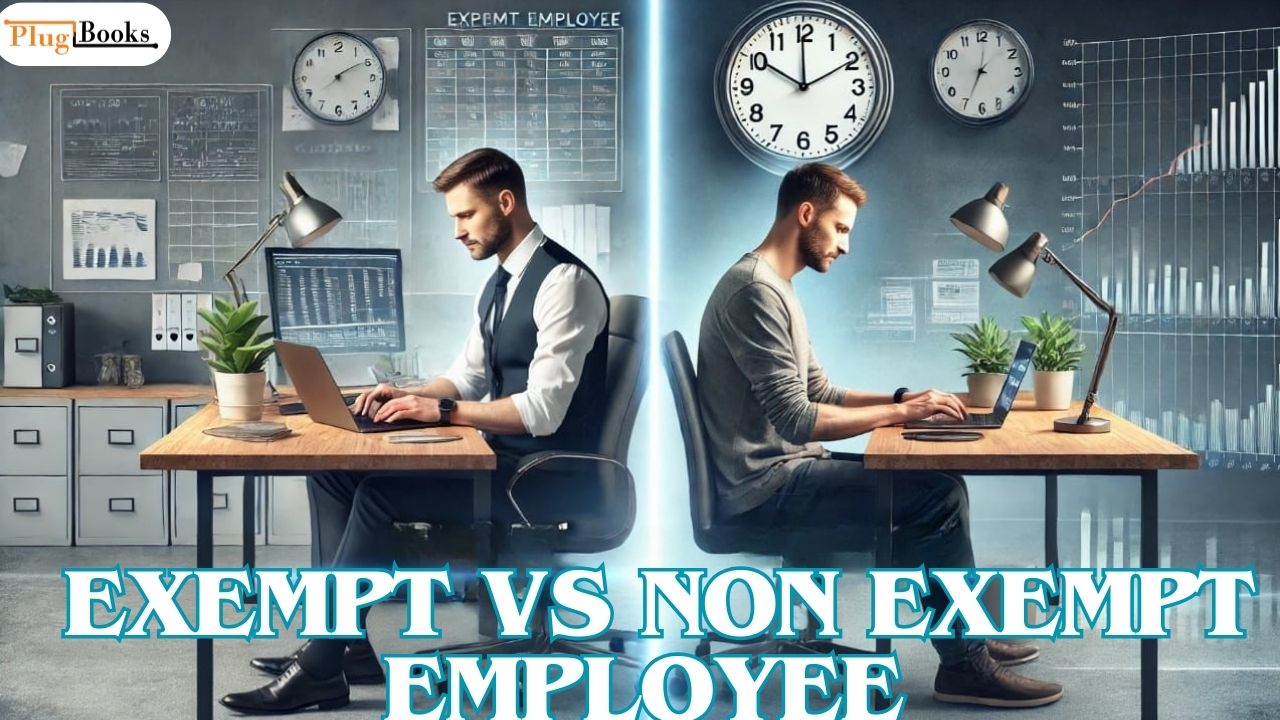One of the most often used and significant divisions in employee classifications is between Exempt vs Non Exempt Employee. For both companies and workers, knowing these phrases is crucial since they influence wages, working hours, and overtime compensation. We will discuss in this essay the variations between these two categories and their effects on the workplace.
What Does Exempt Mean?
An exempt employee is one who is not paid overtime. This implies that they won’t be eligible for additional compensation regardless of how many hours they work outside the required forty-hour schedule. Usually paid rather than hourly, exempt personnel fit either executive, professional, or administrative categories.
The difference between exempt vs non exempt employees is significant as it guides companies on pay scales. Usually in their positions, exempt individuals have a great degree of authority and autonomous decision-making ability.
What Does Non Exempt Mean?
Conversely, a non exempt employee is eligible for overtime compensation. Usually paid an hourly rate, non exempt workers must get overtime pay for any hours worked beyond forty in a week per pursuant the Fair Labor Standards Act (FLSA). Generally speaking, this categorization fits workers in more regular or task-oriented tasks when their work does not require the high-level decision-making observed in exempt positions.

Exempt vs Non Exempt Employee: Key Differences
- Pay Through Overtime
Overtime pay is the main distinction between exempt from non exempt workers. For any hours worked outside of forty in a week, non exempt employees are entitled to 1.5 times their usual rate. But because of the nature of their work, exempt employees are not eligible for overtime compensation.
- Salary Versus Hourly
Usually paid, exempt employees—that is, those whose salary is set independent of their working hours—have Usually hourly, non exempt workers who are paid depending on the weekly hours they work plus overtime.
- Employment Roles and Accountabilities
Additionally in terms of work responsibilities exempt vs non exempt employee jobs are different. Exempt workers—such as managers or experts in specialized industries like law, medicine, or finance—often have more complicated tasks with more degrees of accountability. Usually doing more regular or manual duties devoid of the same degree of knowledge or autonomous judgment, non exempt personnel
- Minimum Pay Policies
Employees must satisfy specific pay levels established by the Department of Labor if they want to be exempt. The minimum pay needed for an exempt employee as of 2023 is $684 a week (or $35,548 yearly). Non-exempt workers, on the other hand, can make hourly pay less than this level and do not have to satisfy a salary minimum.

Why Does the Exempt vs Non Exempt Classification Matter?
Businesses and employees alike depend on an awareness of what is exempt from what is not exempt in employment categorization. It guarantees for companies adherence to labor laws and guidelines for salaries and overtime. Knowing whether you are exempt or nonexempt can help staff members understand their rights about salary and working hours.
Non-exempt employees might feel more under pressure to keep track of their hours and guarantee they are paid fairly for extra effort. Conversely, exempt workers should be advised that their absence of overtime pay does not indicate they can be overworked without regard.
How to Determine Your Classification
Check your work description and pay information to find out whether you are an exempt or nonexempt employee. You may also ask your HR department for an explanation or refer to your employment contract. Remember that exemptions depend on work responsibilities as well as income; hence, even if you are salaried, you cannot be exempt automatically.
How PlugBooks.io Enhances Your Business Operations with Key Integrations
Using PlugBooks.io can let you easily handle e-commerce and business money. Our system easily connects with tools such Amazon, eBay, QuickBooks, and Xero, therefore streamlining chores and increasing productivity.
Whether your accounting is automated or you track sales and returns, we assist save time, minimize mistakes, and guarantee accurate, current records so you may concentrate on expanding your company.
Conclusion
Generally speaking, work responsibilities, compensation structure, and overtime pay define the distinctions between exempt vs non exempt employees. While exempt employees are paid and not entitled to overtime, non-exempt employees are hourly and thus entitled. Knowing these differences facilitates workplace rights, pay, and decision-making for companies as well as for workers.




